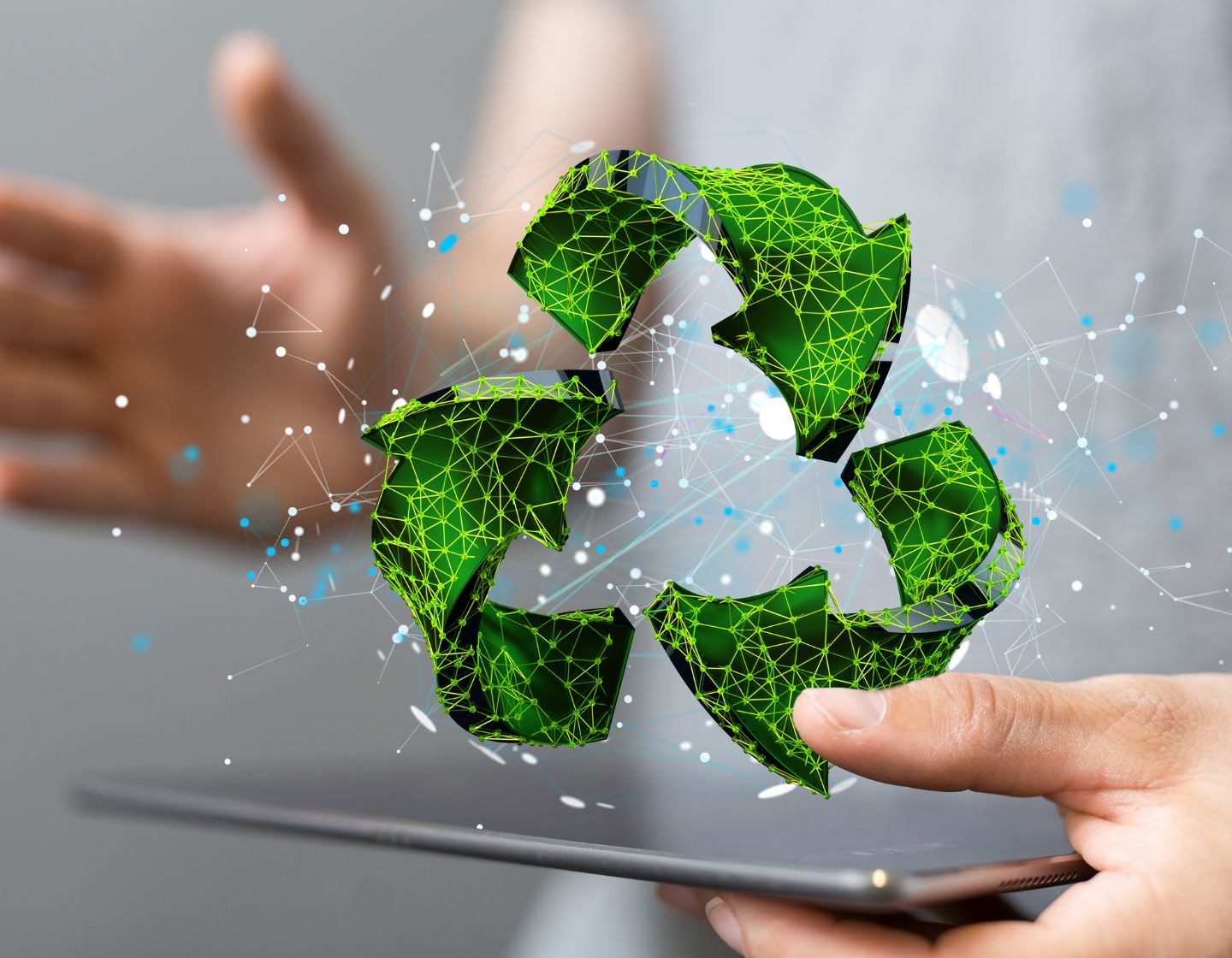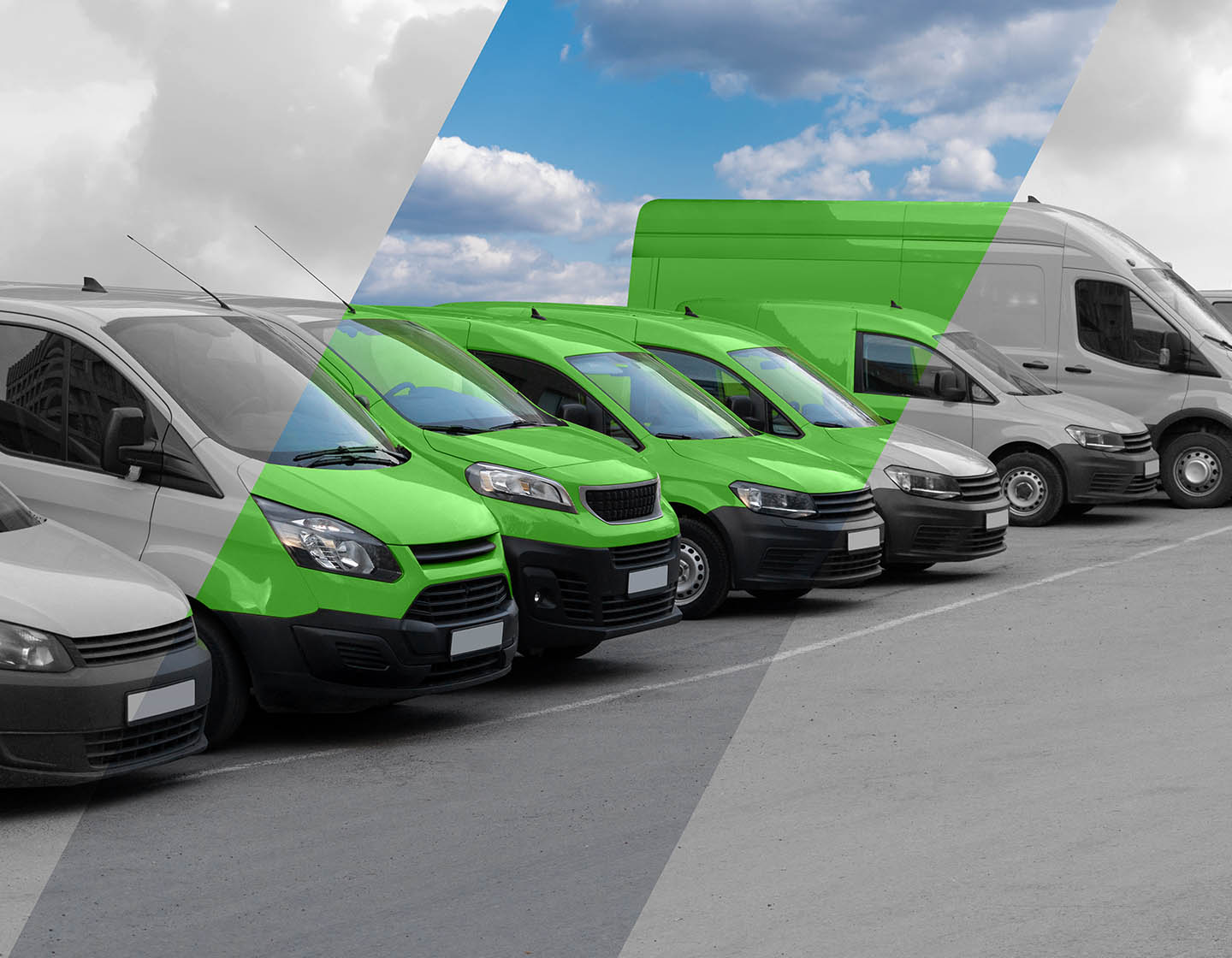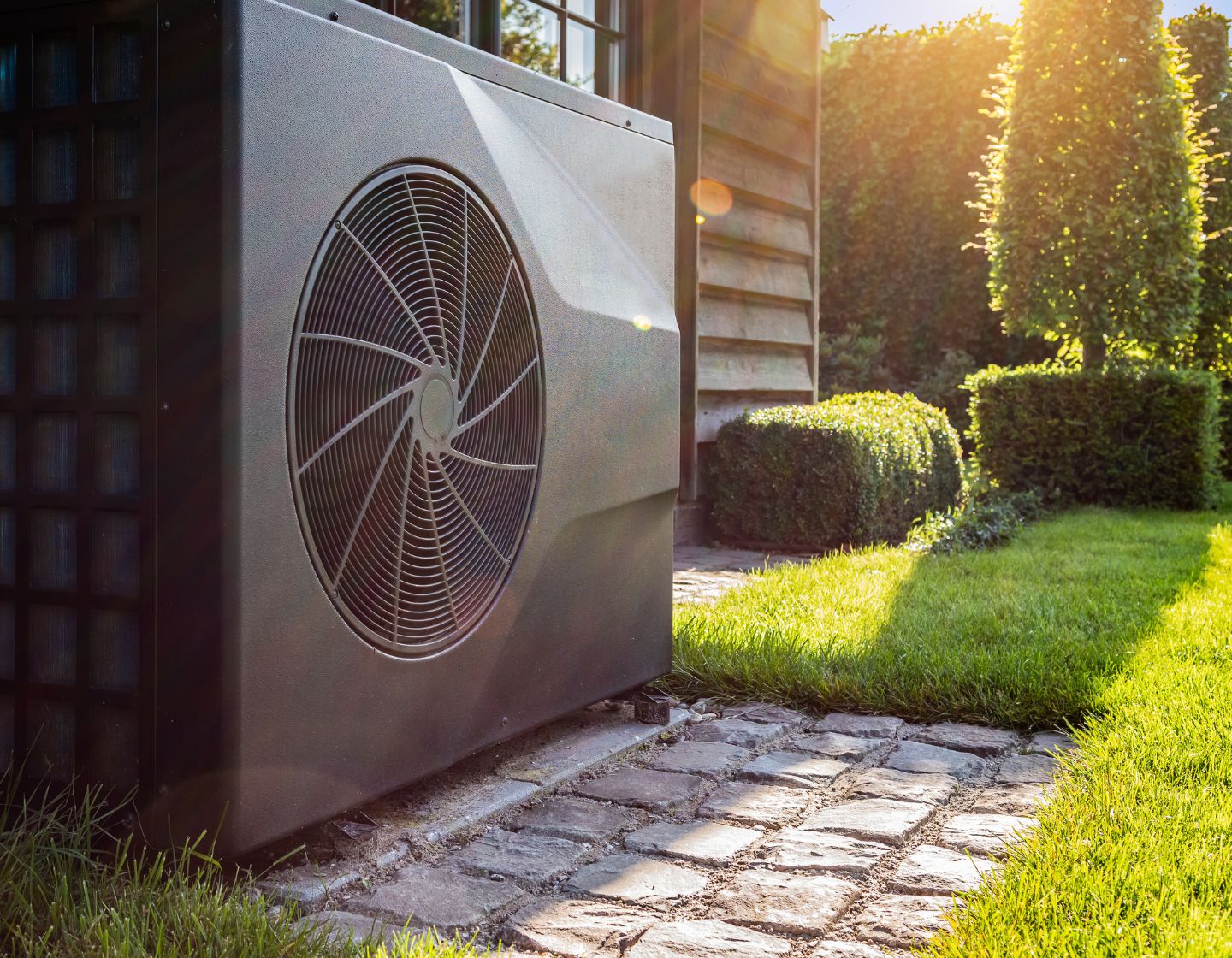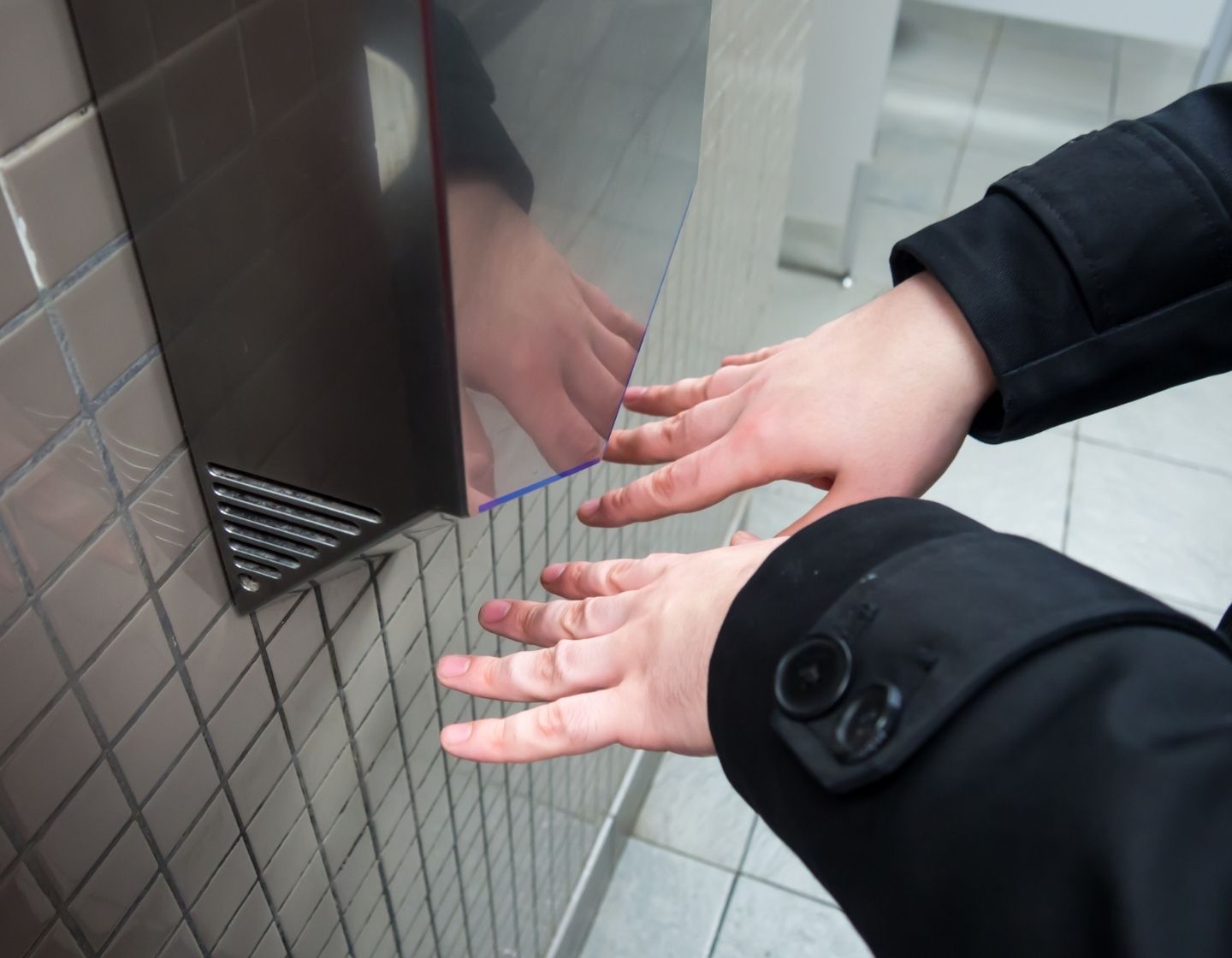10 Easy Ways to Reduce Your Business’s Carbon Footprint and Save Money
Taking steps to reduce your carbon footprint not only positively impacts the planet. It also benefits other elements of your business, like reducing costs and improving employee retention. A report by the Carbon Commitment revealed that 57% of employees believe their employers aren’t doing enough to cut their carbon footprint. And many employees are demanding change.
So, how can businesses commit to change?
Improve recycling
In England, 1/4 of waste is produced by enterprise organisations, meaning businesses have a huge responsibility to recycle. It is a super easy and effective way to prevent waste from being sent to landfill. The majority of employees should be used to recycling at home so bringing this mindset into work should come naturally.
In production, moving to a circular economy will have an even bigger positive environmental impact. By taking waste and repurposing it into usable materials and products, there will be less demand for raw materials – reducing carbon emissions and waste. Samsung is one of the huge brands adopting a circular economy in some of their models as part of its Together for Tomorrow vision.
If one of your business goals is to improve company culture, recycling contributes to this. It can help employees feel like they are working towards a shared goal and be part of positive change. Additionally, recycling saves money because you don’t have to pay landfill tax rates and waste disposal gate fees.

Turn to renewable energy sources
Businesses can reap tons of benefits from renewable energy sources such as solar PV systems. The main advantage is reduced electricity costs, which is pivotal in today’s cost of living crisis. Although it is a big upfront investment, it is guaranteed ROI and you’ll earn your money back (and more with what you save).
Turning away from fossil fuels will also lower your carbon footprint and enhance your business’s reputation with green credentials. More and more consumers are choosing businesses that invest in green practices and businesses must keep up with this change to stay relevant.
Switch to LED
LEDs have taken over the home and considering businesses operate nearly 24/7 in some way or another, it’s time for businesses to follow suit. LED lights are more energy-efficient than regular lightbulbs: they use 90% less energy to produce the same amount of light. It’s a no-brainer. LEDs are also more reliable and last considerably longer, reducing maintenance time in the workplace.
Another great thing about LEDs is that they come in a range of colour temperatures, and some are dimmable. Poor lighting can cause eye strain, fatigue and headaches. Adjusting from warm to cool light depending on the time of day or task at hand gives employees the freedom to customise their workspace and create a place to maximise productivity and wellbeing.

Reduce road travel
Transport is one of the greatest contributors to carbon emissions. Commuting accounts for 18 billion kilograms of carbon dioxide emissions in the UK – 25% of total transport emissions. How can businesses reduce this number?
Virtual meetings:
We’re no strangers to a virtual meetings anymore. If multiple employees drive to a single location for a meeting, that produces masses of emissions that could have been prevented. Hybrid working has become the norm for many businesses, not only giving employees more freedom but creating a greener workforce.
Carpooling:
Creating a carpooling program at work is a great way to reduce carbon emissions and ease the stress on the environment. Plus, it helps build a positive office culture. Employees have the chance to meet people from different departments, share ideas and save money together. All of which have direct positive consequences on employee wellbeing and performance.
Public transport:
While it may not be possible for everyone, catching public transport is a greener alternative to driving. If your business is in a position to subside some of the commutes, not only will it decrease overall emissions, but it could also aid employee wellbeing: giving them extra time to de-stress.
Cycle to work scheme:
Help your employees save up to 48.25% on a new bike with the government’s Bike2Work scheme. Not only will it reduce your carbon footprint, but it will also save you thousands in national insurance contributions and contribute to a happier and healthier workforce.
Switch to electric vehicles:
Electric vehicles (EVs) produce zero carbon dioxide emissions when driving. In comparison, a typical vehicle emits 4.6 metric tons of carbon dioxide a year. Just one electric car can save the planet 1.5 million grams of carbon dioxide – just imagine what that figure could be!
We have EV specialists on hand to help you start your workplace charging journey today. Starting with a 30-minute call, we’ll work with you to find the right end-to-end solution for your specific needs.

Keep documents digital
According to DocuSign, the world produces roughly 420 million tons of paper every year. But in recent years, the office has been undergoing a digital transformation, reducing natural resource consumption, pollution and waste.
Going paperless is an easy and efficient way to reduce your business’s carbon footprint. Not only does paper require a large number of trees, leading to deforestation, but it also needs chemicals and water to complete the process: World Counts suggests it requires 10 litres of water to produce a single sheet of A4 paper. And paper pulp mills use a huge amount of energy to produce paper.
Further benefits include maximising workplace efficiency and reducing costs – triple wins! Now, everything can be stored on the cloud. That means reduced costs: businesses can spend less money on paper, ink, postage and transportation, using that money in more valuable ways. Plus, less time is wasted on manual processes like filing, searching and retrieving documents, increasing productivity and further maximising profit.
Optimise your heating and cooling systems
Heating Ventilation and Air Conditioning (HVAC) systems account for almost half of the energy used in commercial buildings. According to the United States Environmental Protection Agency (EPA), those same systems are in the top five contributors to greenhouse gas emissions. And in 24/7 operations such as hotels and hospitals, that number grows exponentially.
Heating and air conditioning are not something that businesses can get rid of, so we need to find greener alternatives. And energy management is the key. The GEM link solution is a pioneer in cost-saving, sensor-based energy management. It only takes 60 minutes to retrofit into most existing HVAC systems, helping businesses save 30% on energy with fast paybacks.
As the sole partner for Lodging Technology in EMEA, we’re experts in delivering effective energy management, helping you reduce costs and your business’s carbon footprint.

Switch off and unplug
Think how many appliances and how much technology is in an office – from kettles and microwaves to computers and lights. Even if a device isn’t on, it still uses energy. And no matter how small, this all adds up.
Turning off the lights, shutting down computers and unplugging devices that aren’t in use each day will reduce your energy consumption and in turn reduce costs and carbon emissions. It’s a small action that can make a big difference, with virtually no hassle!
Invest in energy-efficient appliances
The average business electricity bill in the UK is £3,061 per year. More businesses are investing in energy-efficient appliances and green technology to cut operational costs and future-proof their organisation. One way to do that is with instant hot water taps.
Instant hot water taps have become increasingly popular choices due to their economic credentials. Hundreds of teas and coffees are likely made throughout a single day in the office, using a lot of energy every time. Boiling water taps store and draw kettle-hot filtered water on demand, directly from the tap.
According to The Times, tea drinkers tend to overfill their kettles with twice as much water as they need, wasting a huge amount of energy. This results in unnecessarily boiling 70 million litres of water every day. The great thing about boiling water taps is that it instantly gives you the exact amount you need. No more guesswork.
Eco hand dryers
Investing in quality eco hand dryers is a wise investment for any business. Paper towel dryers are expensive: thousands of pounds are spent purchasing, maintaining and disposing of waste every year. Waste paper can rarely be recycled, ending up in landfill instead. But traditional hand dryers are just as bad. Some of them consume more electricity as they are slow and have a much shorter lifespan.
Our range of eco hand dryers maintains the highest level of hygiene standards. The SMCC eco hand dryer has an average running cost of £16 per year compared to a paper towel dryer which can cost businesses up to £1,460 per year. Plus, it produces almost two-thirds less greenhouse gas emissions!

Ultra-low flow toilets and waterless urinals
Traditional toilets in the UK average 9 litres per flush and account for up to 85% of commercial water in buildings. Propelair toilets are one of the innovative solutions helping businesses to reduce their water consumption: 84% less water to be precise. Similarly, urinal flushing is one of the worst offenders of water consumption. Choosing waterless urinals such as the WhiffAway Waterless Urinal Starter Kit is more hygienic and just one will save 35,000 gallons of water per year.
This article has been written by SaveMoneyCutCarbon and is correct at January 2023. This content does not constitute advice and is for general guidance and educational purposes only. It should not be circulated or used in presentations or materials without prior approvals and does not constitute legal advice or formal training. Always undertake your own research before taking any action. It is recommended that specific professional advice relevant to any particular or individual situation is sought before acting on any information given (© 2023 SaveMoneyCutCarbon.com)

